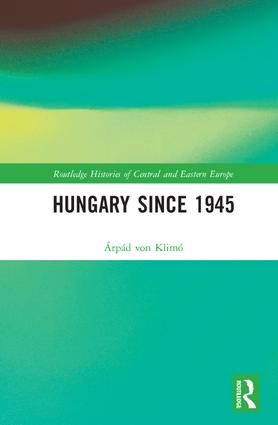
Routledge has just released Hungary Since 1945 – volume 1 of its new series, Routledge Histories of Central and Eastern Europe – by Árpád von Klimó, Associate Professor of History.
The book is a comprehensively revised, updated version of Dr. von Klimó’s Ungarn seit 1945 (2006). Much of it is completely rewritten, because of the political upheaval in the country caused by the economic and financial crisis of 2008. As a consequence, large parts of the population were impoverished and the political and party system radically changed, making way for the triumph of Viktor Orbán and his Fidesz party that won a landslide victory in 2010 and introduced a new constitution.
Major themes of the book are the politics of memory, Stalinism, and the activities of Catholic youth groups during the period of János Kádár’s leadership of Hungary (1956-1988). The book also discusses changes brought by and reflected in popular culture, fashion and sports, especially soccer. Other chapters analyze diplomacy and economic and social development, as well as the important sphere of social politics and how it contributed to the undermining of the Communist regime in the long run. Dr. von Klimó emphasizes that Hungary Since 1945 presents the country’s history in a wider, European context.
His current research focuses upon transnational anticommunist networks gathered around the figure of József Cardinal Mindszenty, head of the Catholic Church in Hungary, during the 1970s.
